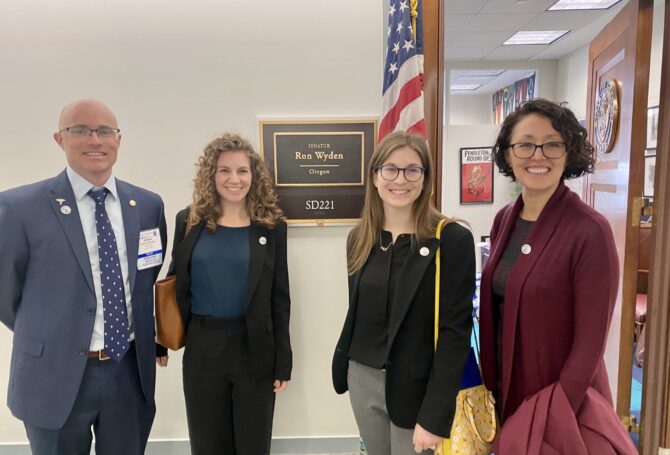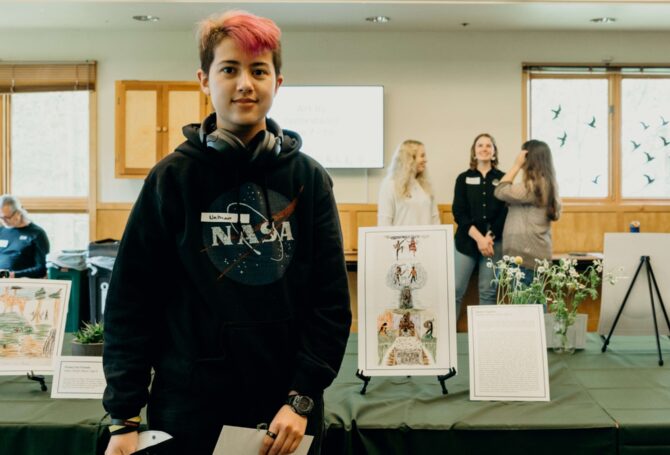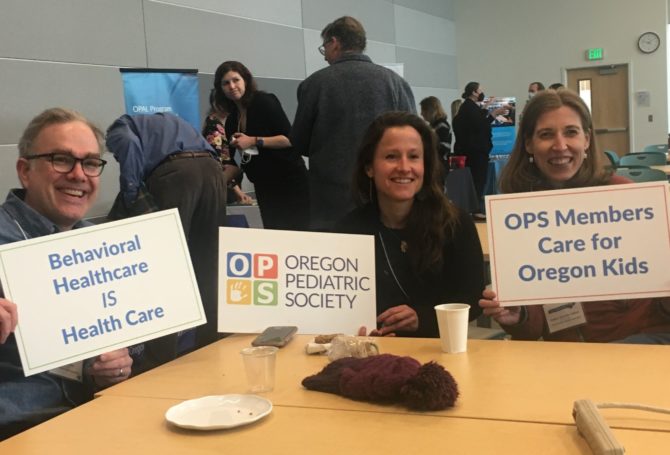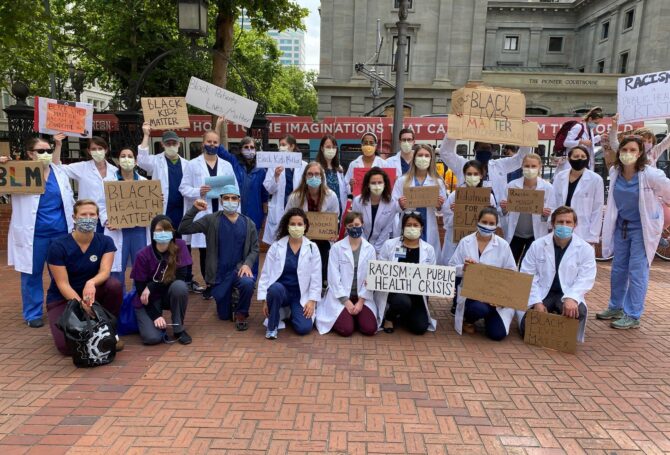
February 22, 2023
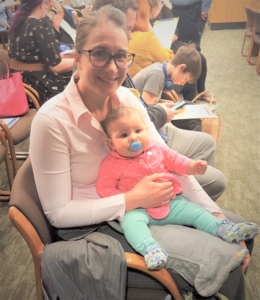
Dr. Angela Zallen, along with her child, testifies about the importance of childhood immunizations at the Oregon Capitol on 4/24/19
As physicians, we are accustomed to advocating for our patients on an individual level, whether it be fighting for appropriate placement, for appropriate medical equipment or medications, or medically necessary procedures. Many of us are not as comfortable advocating on a systems level for issues that impact the health of populations, but it is a very powerful avenue for physicians to become agents for change in a system that often prioritizes money over health. There are many ways we can be engaged in advocacy, and every time we use our voices, we have the capacity to incite changes for the greater good. We have power and influence as a medical community that is often underrecognized by us, but can be significant with policy makers that listen to and value our opinions as content area experts. We need to use those voices to educate and empower them to make policy decisions that will benefit our communities. For vulnerable populations such as children, the elderly, or those with intellectual disabilities, it is more integral that we partner, collaborate, and advocate for those that cannot advocate for themselves. My advocacy journey started in medical school where I found a passion for advocacy and the ability to make a difference for the patients I was learning to care for. Throughout my journey, I learned effective ways to bring attention to issues that matter. I continued to learn advocacy tools in residency by attending the American Academy of Pediatrics Advocacy conference. Now, as an attending physician, most of my advocacy efforts are at the State level through the American Academy of Pediatrics and our state chapter, the Oregon Pediatric Society. I want to highlight some of the things I have learned along the way that have improved my confidence in being a strong advocate for the health of children and my grasp of the power of poignant messaging.
WE HAVE MORE POWER TOGETHER.
The more we can advocate in groups for things we collectively believe in, the stronger our message and the more effective we will be. This can mean getting a group together to write letters to our elected leaders or call their offices. Using the influence of our professional organizations to organize lobby days where many professionals gather at the same time to amplify a message can be very effective. This means finding allies in the legislature that can lend clout to our efforts. We are stronger when we advocate together.
WRITE IT DOWN.
We have powerful stories of the people, families, communities that are affected by specific policies. We see and hear those daily with the patients we care for on the front lines, and we can effectively relay those stories to key decision makers to bring to light issues that policy can affect. We can write and/or give verbal testimony in public hearings for bills we believe in or offer our expertise for further work sessions on priority bills. Our words and expertise have weight and writing them down is an enduring way to communicate our policy objectives.
USE THE MEDIA TO OUR ADVANTAGE.
Write op-eds in local or state newspapers. Use our content area expertise to shed light on important issues by doing interviews on radio, television, and written news content. Now, more than ever, the media needs to hear what we have to say to appropriately frame and shape the messaging delivered to our community.
PAY ATTENTION TO FRAMING.
Framing of a message can make a world of difference in how that information is received by the public and how effective it is in guiding policy decisions. Our messages should be short, concise, direct, and on message. Plan out the framing of a message before meeting with policy makers or the media. Plan the answers to inevitable questions that delve deeper into an issue so as to avoid veering from that message or making other sound bites that do not fit our view of the issue.
RUN FOR OFFICE.
Most politics are local and if policy making appeals to you, elected positions at every level need voices from medicine to guide the debates on policies that affect our population’s health and well-being. Getting involved in politics can be daunting and the commitment is not for everyone, but the more voices we have in government, the more informed our policies will be. To be effective advocates, we don’t need to do all the above to effect change, we need only find the avenues that make the most sense to us and our communities. Working advocacy into busy physician schedules can be daunting especially if there are other demands for our time, but engaging in some advocacy to elicit systems-level changes can make the world of difference to those we care for.
This article was originally published in Lane County Medical Society’s Medical Matters.

